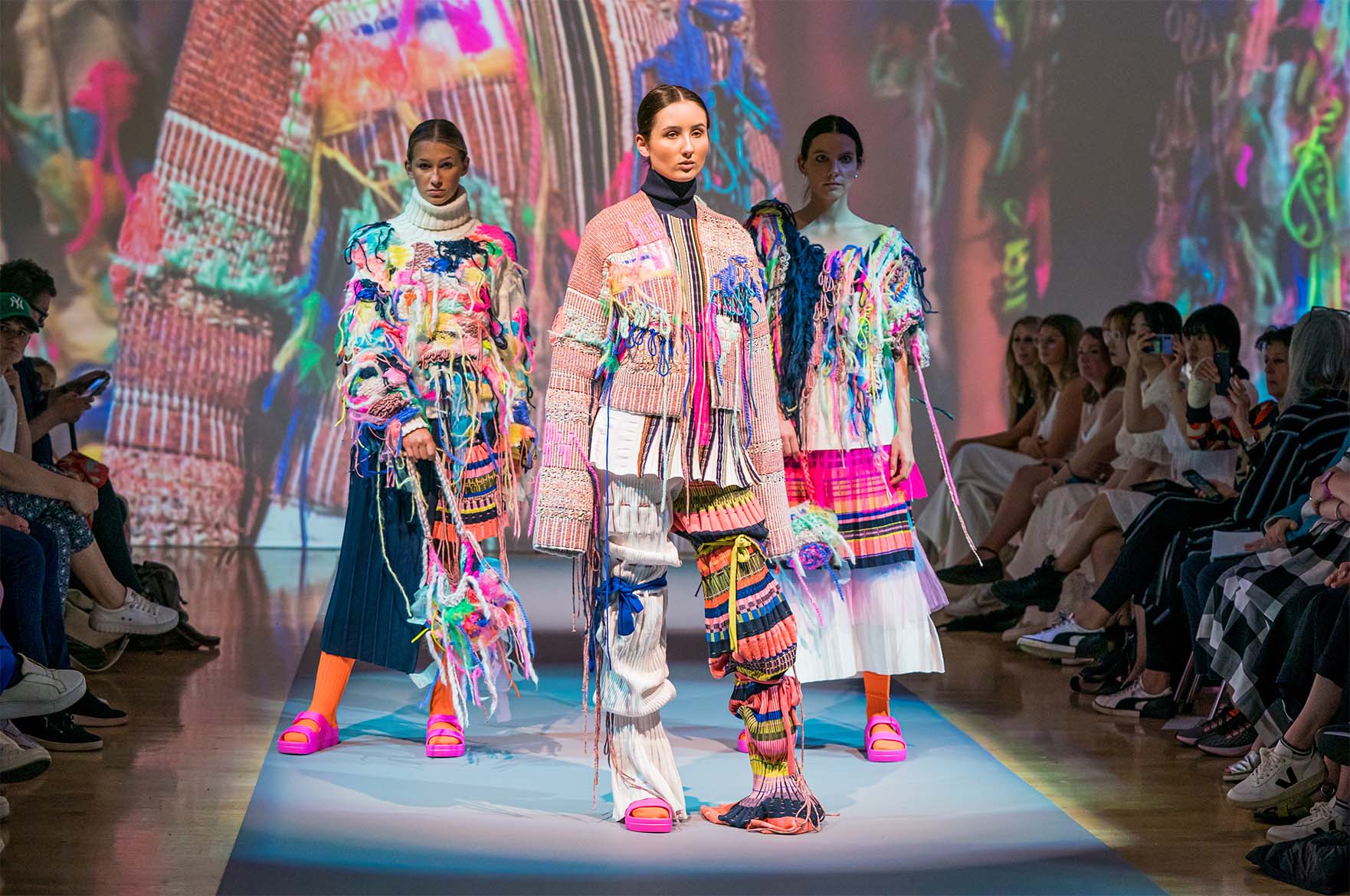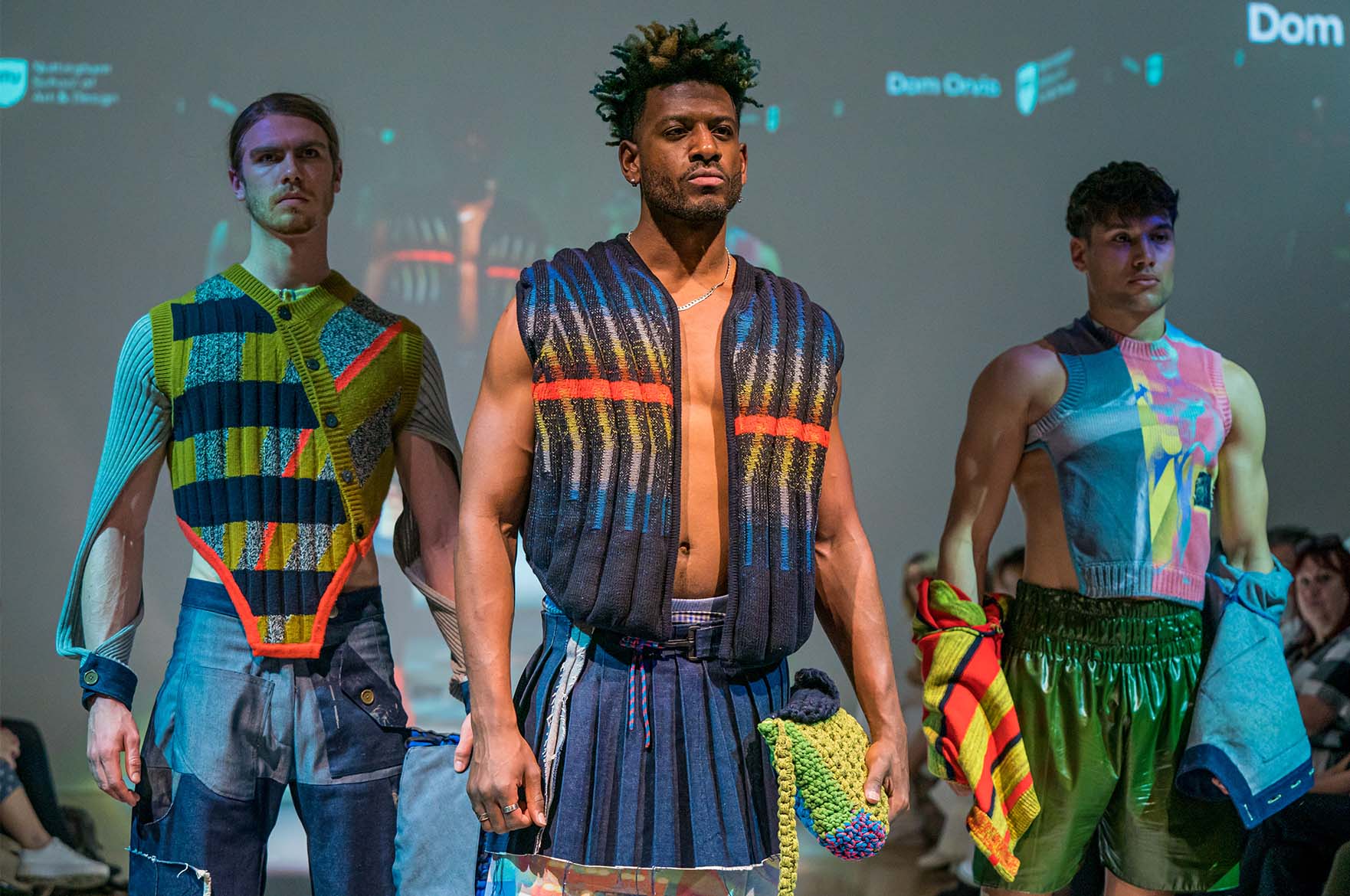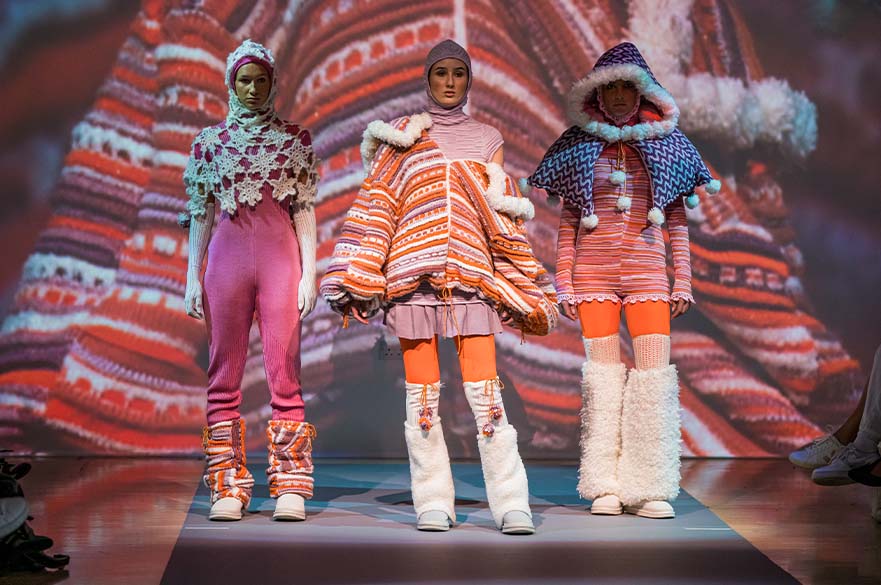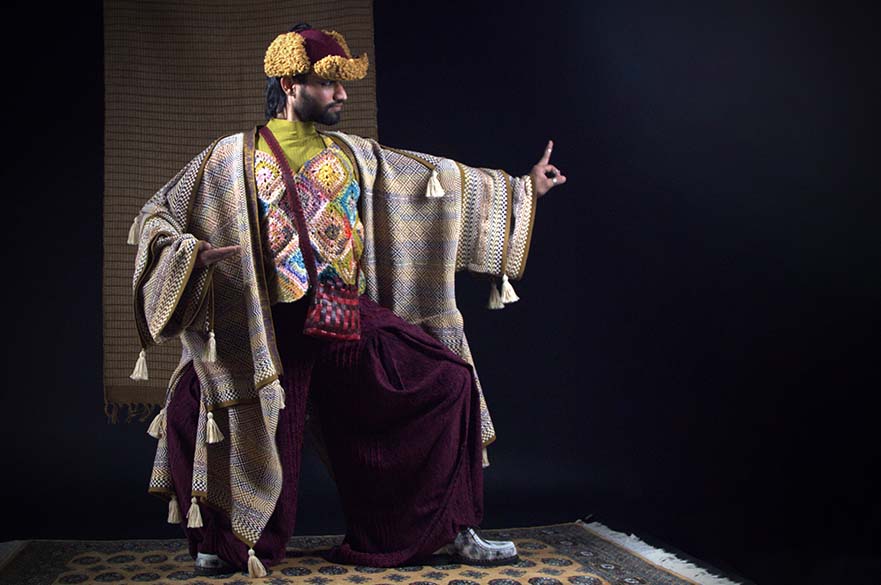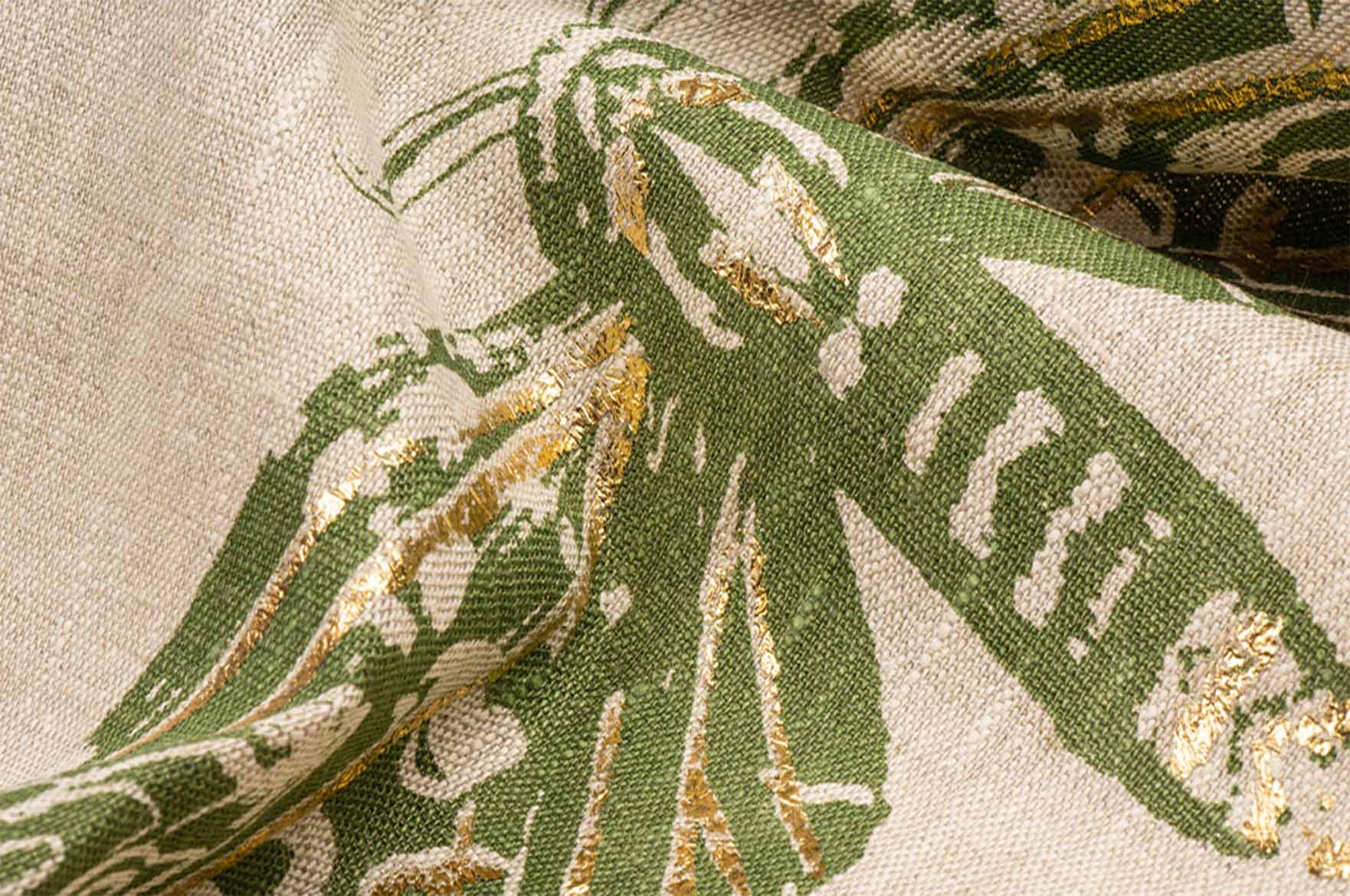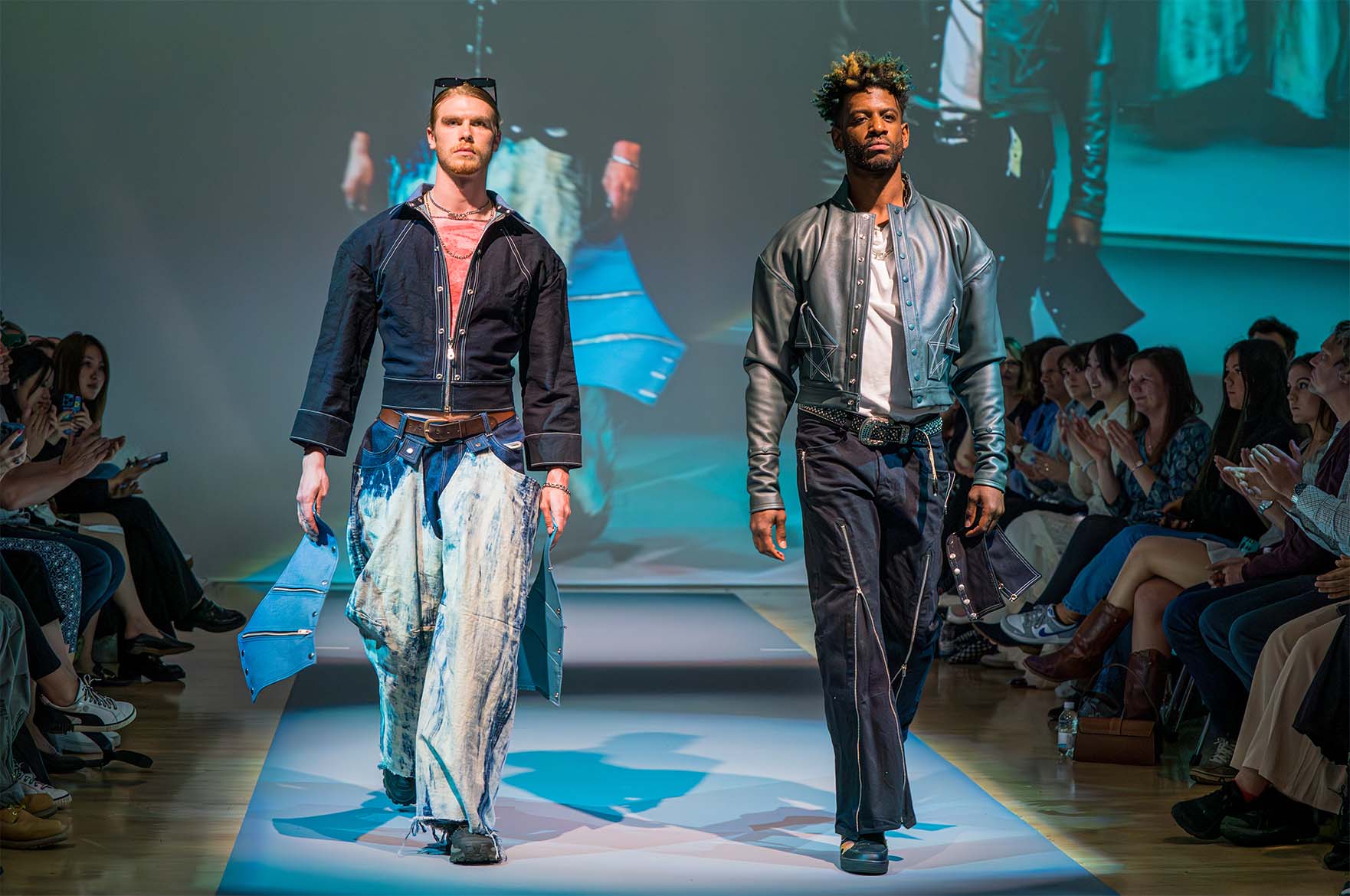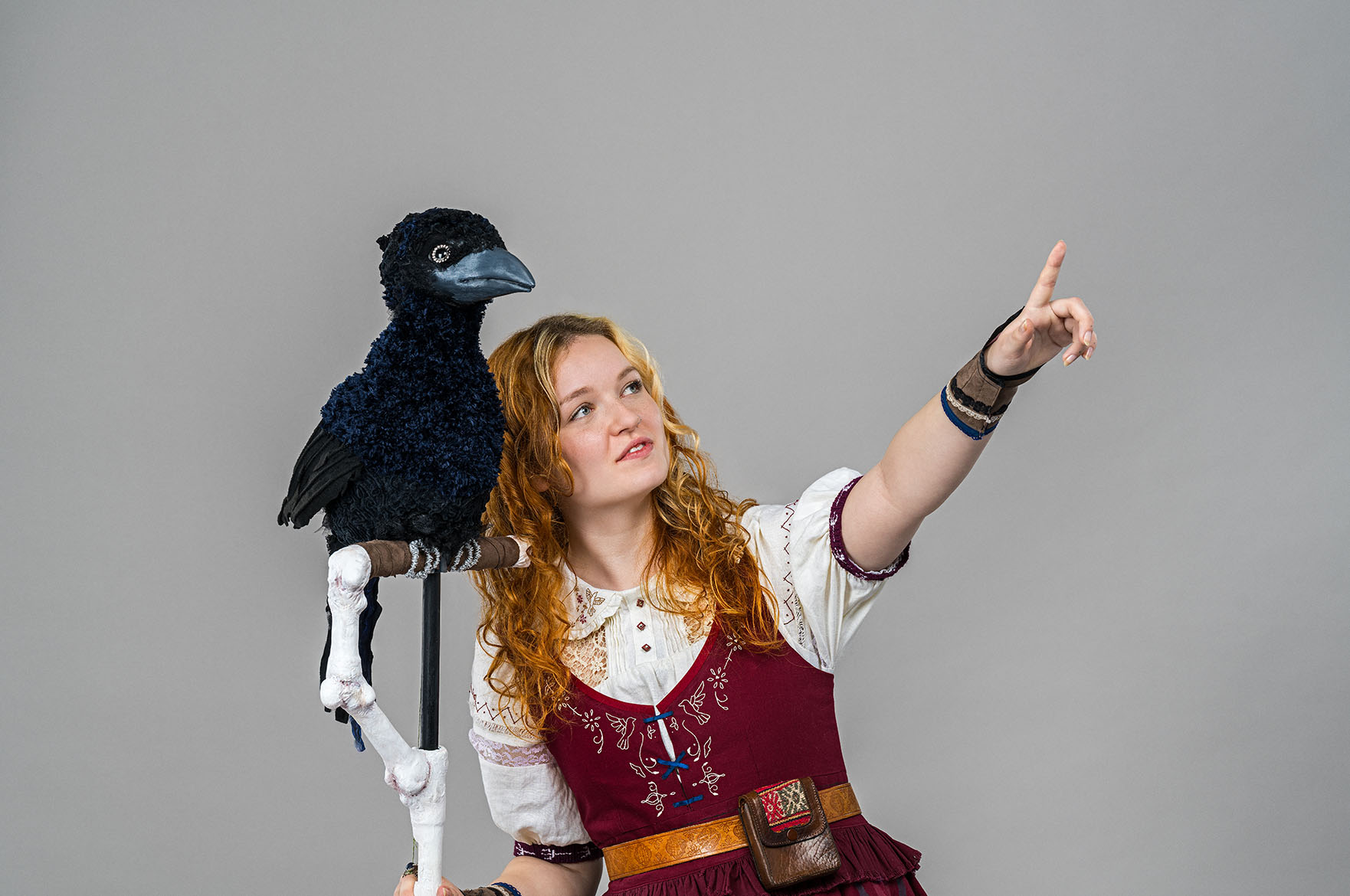This course is in Clearing
Offers from 80 tariff points
About this course
This highly respected degree offers you full creative control over the design and creation of fabrics, garments and products for fashion or interiors. You will develop your creative potential through developing technical and design skills, including innovative digital knit processes that are in high demand in the fashion and textile industry.
Our experienced staff will guide you through the journey, helping you transform your vision into tangible creations. With a perfect balance between technical teaching and project-based work, our Fashion Knitwear Design and Knitted Textiles course will empower you to bring your creative aspirations to life while laying a solid foundation for a successful and fulfilling career in the dynamic world of fashion and knitwear.
Keep up to date with what our current Knitwear students are up to by following our Instagram account.
15
What you’ll study
This dynamic, industry-connected course prepares you for a career as a future-focused creative designer and thinker, fluent with current global industry practices. You will study specialist digital techniques and traditional hand methods to develop your skills in knitted fabric design innovation, garment shape and product development, construction and manufacture for fashion or interiors.
Curiosity: Creative Exploration and Research
(40 credit points, full year)
This module explores core design components: concept, drawing, materials, colour and future thinking. You will be encouraged to question how fundamental aspects of design practice and theory can be used as both research tools and as a means to develop your design identity in a creative, explorative and hands on way. You will work with students across the department and begin to identify your future direction.
Curiosity: Creative Development and Application for Fashion Knitwear Design and Knitted Textiles
(80 credit points, full year)
Through a series of workshops, you will be introduced to a range of technical and experimental approaches to designing for fashion and textiles. You will develop your practical skills and understanding of specialist knitwear and knitted textiles manufacturing processes as well as CAD, and build an awareness of core issues relating to design responsibility, sustainability and ethics. You will also develop further understanding of the value and principles of primary and secondary research for fashion and textiles, ideas generation, fashion illustration and styling.
Directions: Industry and Context for Fashion Knitwear Design and Knitted Textiles
(40 credit points, first half of the year)
In this module you will engage with visual, market and contextual research to initiate innovative and creative responses to industry-led briefs. You will develop your CAD / CAM skills relating to fashion knitwear and knitted textile industry specialist requirements. Practical workshops in fashion knitwear garment manufacture, knitted textiles and knitted finishing techniques for products will deepen your understanding of technical skills and processes and responsible design practice. Preparation for placement or work experience will be supported by workshops on employability skills and techniques and portfolio development.
(Direct entry and transfer students to Year Two will receive induction workshops to upskill and support the development of your creative ideas for knitted fabrics / knitwear / products.)
Directions: Innovation and Transition for Fashion Knitwear Design and Knitted Textiles
(40 credit points, second half of the year)
You will build on your design and research skills through the application of advanced techniques and the selection of individual research topics, methods and methodologies. You will write your own design brief and undertake primary and secondary research to develop meaningful design concepts that respond to contemporary cultural contexts and issues. This module supports your transition to your final year, enhancing your ability to develop individual research proposals that reflect personal design interests and building on theory and practice. You will extend and test innovative approaches to your specialist textile area, working beyond discipline boundaries where appropriate.
Co Lab: Research, Exploration and Risk-Taking
(20 credit points, second half of the year)
Through active participation with team-based problem solving, you will work together in mixed teams on a project where you will use your creative ideas to generate solutions to the challenge or brief. Your project will allow you to explore how creativity can make an impact in society, as you choose a theme of sustainability, social justice, enterprise and innovation or community. This collaborative learning experience will expose you to a range of new processes and approaches that will develop your creative thinking.
Optional Module
(20 credit points, first half of the year)
Personalise your learning, selecting a module that develops your awareness of possible professional futures you may wish to engage with. Study with students from the creative community in the Nottingham School of Art and Design to expand your horizons, challenge ways of thinking and facilitate potential future collaborations.
Choose from:
- Slow Making and Craftsmanship
- Trend Forecasting
- Buying, Merchandising and Product Fundamentals
- Creative Entrepreneurship
- Web3 & Creative Autonomy
- Drawing & Exploring with Natural Materials
- Fashion Styling
- Prop Making
Optional Placement Year (Sandwich)
We have an option for all of our students to undertake a placement year (Sandwich) and allow you to decide whether this is right for you once you have completed years 1 and 2 of your course. This time spent working in industry provides our students with crucial work experience, which is highly prized and much sought after by employers upon graduation. If you are successful in securing a placement you will have the chance to gain an additional Certificate or Diploma in Professional Practice, dependent on duration.
Resolutions: Culture and Context
(20 credit points, first half of the year / 40 credit points, full year)
Develop an individual research concept established at the end of second year that advances your knowledge of contextual issues, cultural theories and debates. You will present this as a dissertation or in the alternative format of a visual product. Students choosing the 40-credit option will complete an extended body of research work for exhibition or publication.
Resolutions: Practice and Context for Fashion Knitwear Design and Knitted Textiles
(100 / 80 credit points, full year)
You will develop a professional portfolio and collection that communicates your creative design thinking and decision-making and is informed by your emerging design interests and ways of working developed progressively through the course. Guided by your career aspirations you will create either a fashion collection or a collection of fashion fabrics or fashion / interior products for exhibition. The year will culminate in showcasing your collection and portfolio to a range of audiences and provide an opportunity for your ongoing personal and professional development.
The year will include opportunities to engage with external contexts through live projects, competitions, or professional bodies and culminates with showcasing your collection and portfolio to a range of audiences and opportunities for your ongoing personal and professional development.
Students choosing the 100-credit module will in addition complete a production dossier and Lookbook.
We regularly review and update our course content based on student and employer feedback, ensuring that all of our courses remain current and relevant. This may result in changes to module content or module availability in future years.
Don’t just take our word for it, hear from our students themselves
Student Work
Video Gallery
How you're taught
You’ll spend most of your time in a creative studio environment. Teaching and learning experiences will include creative approaches to generate ideas and design development through:
- project work
- live projects
- study visits
- lectures and briefings
- technical demonstrations
- knitting and manufacturing workshops
- studio and IT workshops
- seminars
- tutorials
- peer and self-evaluations
- presentations and teamwork.
Co Lab
Want real-world experience alongside your degree? Co Lab is your opportunity to work with peers from different disciplines on live projects set by industry partners. Embrace collaborative practice as you explore how creativity can make an impact in society and develop the skills employers want to see in the creative industries.
Exchange opportunities
If you’re thinking about studying part of your degree abroad, the course has exchange agreements with a number of institutions around the world.
Exchanges take place in Year Two of the course. You’ll receive guidance from the University about where you can study, and help in completing your application and arranging your exchange.
Trips and study visits
Recent study trips and visits for this course have included:
- Pitti Filati yarn and fabric trade fair in Florence, Italy
- SPINEXPO, with the opportunity to be selected to attend the event in Shanghai
- V&A Museum, London
- Ruddington Framework Knitters Museum.
Exchange and overseas opportunities
The course has exchange agreements with a number of institutions around the world, such as the Amsterdam Fashion Institute in the Netherlands and Hong Kong Polytechnic University. You can apply to go on exchange in Year Two for one semester. Three Knitwear students were previously funded to travel to China to exhibit their work at an international design competition with International Foundation of Fashion Technology Institutes
Showcase
You will be given the opportunity to exhibit your work during your time at NTU to members of the creative industries. You may also be selected to showcase at Graduate Fashion Week in London – where many of our previous students have won awards. Our students have also had success with the prestigious Tu Sainsbury's Scholarship and the Visionary Knitwear Award.
Visit our ‘We Are Creatives’ showcase to take a look at the work of this year's graduating students’.
How you're assessed
Assessment of the course is 100% coursework. Throughout the course, this will be required in a variety of formats depending on the module. Examples include presented design collections with supporting research in the form of sketchbooks, 2D and 3D design development, technical documentation and contextual research; digital formats of workbooks / reports / reflective practice including professional development; essays / visual essays / production synopsis and a dissertation / visual product at Level 6.
Careers and employability
Graduates go into fields such as design, product development, styling and promotion and global sourcing.
Recent graduate destinations include:
- Abercrombie & Fitch
- Alphatex
- Calvin Klein
- DKNY
- Hugo Boss
- John Smedley
- Josh Goot
- Julian MacDonald
- Lauren Richards
- Nike
- Pantherella
- Sophie Steller
- Stine Ladefoged
- Sun Hing Ltd.
Work placements and internship opportunities
You can choose to take a year-long work placement in the third year of your studies. A placement year will give you the opportunity to gain real, hands-on experience and valuable skills for the future. Our students undertake placements across the globe, with many securing full-time employment after graduating with their placement company.
If you choose not to do the placement year, you’ll be encouraged to take up to two weeks of work experience alongside your studies in years One and Two.
Studying a creative degree in a large university has many benefits, none more so than having access to a large employability team. They'll support you through advice and access to valuable resources to help you find a placement. Not only that, you can access our employability team's services up to three years after graduating!
Connecting with industry
The opportunity to raise your commercial profile, even before you graduate, is fantastic. Benefit from our excellent connections with the fashion and textile industry, through guest lectures, bursary and sponsorship opportunities, industry competitions, European study trips, and support with securing your optional placement year.
We work with a number of professional organisations, including:
- ASBCI (Association of Suppliers to the British Clothing Industry)
- Bradford Textile Society
- British Fashion Council Colleges Committee
- The Society of Dyers and Colourists
- The Textile Society
- UK Fashion & Textile Association.
- Worshipful Company of Framework Knitters
Students have previously had success at the Fashanne Awards and the FAD competition as part of London Fashion Week.
During the past 30 years, 31 of our students have been awarded a bursary by The Worshipful Company of Framework Knitters by demonstrating that their work has the potential to have a significant impact on the British knitwear industry. Each bursary fund could be up to £2,500. Final year collections are regularly sponsored by manufacturers of high-quality luxury yarns.
We have recently worked on live projects with companies including
- John Lewis
- Fashion Awareness Direct
- All Saints
- UKft / M&S
- ANN INC New York
- Next
- Laxton Yarns
- The Society of Dyers and Colourists.
Creative Industries Federation
We are members of the Creative Industries Federation (CIF), which means students in the Nottingham School of Art & Design have the opportunity to sign up to free student membership. Creative Industries Federation are an organisation that represents, champions and supports the UK’s creative industries and membership grants students exclusive access to their selection of resources and events to help advance your career and connect with industry.
What our students are doing now
Clothes to confuse AI cameras and help protect privacy
Clothes designed to provide the wearer with a camouflage from facial recognition technology so that they can remain anonymous in the street have been designed by a student at Nottingham Trent University (NTU).
Funding secured to develop AI toolkit for universities teaching Art and Design
The Voice of Rebellion
Campus and facilities
You’ll be based in the Bonington building, a dedicated art and design hub. Course facilities are extensive, offering you the chance to use both traditional and digital machines. View our Nottingham School of Art & Design Facilities Hub here.
Entry requirements
This course is in Clearing
Looking for a place in Clearing? We are accepting application and would love to hear from you!
UK students
This course is in Clearing
Looking for a place in Clearing? We are accepting applications and would love to hear from you!
Clearing requirements
From 80 UCAS tariff points from up to 4 qualifications.
To discuss our entry requirements and see what we can offer you, call us now on +44 (0)115 848 6000. Alternatively, if you already have your qualifications, apply online via our Clearing Application form.
Preparing for results day? Beat the queue and sign up for NTU Priority for up-to-date information about all things Clearing. You’ll get an offer ahead of Clearing, subject to you achieving the required grades on results day.
Other requirements
To find out what qualifications have tariff points, please use our tariff calculator.
Additional requirements for UK students
There are no additional requirements for this course.
Contextual offers
If you don’t quite meet our entry requirements, we might be able to make you a lower offer based on a range of factors, including your background (such as where you live and the school or college you attended), your experiences and your individual circumstances (you may have been in care, for example). This is called a contextual offer, and we get data from UCAS to help make these decisions. We do this because we believe everyone with the potential to succeed at NTU should have the opportunity to do so, no matter what barriers you may face.
Meeting our entry requirements
Hundreds of qualifications in the UK have UCAS Tariff points attached to specific grades, including A-levels, BTECs, T Levels and many more. You can use your grades and points from up to four different qualifications to meet our criteria. Enter your predicted or achieved grades into our Tariff calculator to find out how many points your qualifications are worth.
Other qualifications and experience
NTU welcomes applications from students with non-standard qualifications and learning backgrounds, either for year one entry or for advanced standing beyond the start of a course into year 2 or beyond.
We consider study and/or credit achieved from a similar course at another institution (otherwise known as credit transfer), vocational and professional qualifications, and broader work or life experience.
Our Recognition of Prior Learning and Credit Transfer Policy outlines the process and options available for this route. If you wish to apply via Recognition of Prior Learning, please contact the central Admissions and Enquiries Team who will be able to support you through the process.
Getting in touch
If you need more help or information, get in touch through our enquiry form.
International students
This course is in Clearing
Looking for a place in Clearing? We are accepting applications and would love to hear from you!
Clearing requirements
From 80 UCAS tariff points from up to 4 qualifications.
To discuss our entry requirements and see what we can offer you, call us now on +44 (0)115 848 6000. Alternatively, if you already have your qualifications, apply online via our Clearing Application form.
Preparing for results day? Beat the queue and sign up for NTU Priority for up-to-date information about all things Clearing. You’ll get an offer ahead of Clearing, subject to you achieving the required grades on results day.
We accept equivalent qualifications from all over the world. Please check your international entry requirements by country.
Other requirements
English language requirements: See our English language requirements page for requirements for your subject and information on alternative tests and Pre-sessional English.
Additional requirements for international students
If you need help achieving the academic entry requirements, we offer a Foundation preparation course for this degree. The course is offered through our partner Nottingham Trent International College (NTIC) based on our City campus.
English language requirements
View our English language requirements for all courses, including alternative English language tests and country qualifications accepted by the University.
If you need help achieving the language requirements, we offer a Pre-Sessional English for Academic Purposes course on our City campus which is an intensive preparation course for academic study at NTU.
Other qualifications and experience
If you have the right level of qualifications, you may be able to start your Bachelors degree at NTU in year 2 or year 3. This is called ‘advanced standing’ entry and is decided on a case-by case basis after our assessment of your qualifications and experience.
You can view our Recognition of Prior Learning and Credit Transfer Policy which outlines the process and options available, such as recognising experiential learning and credit transfer.
Sign up for emails
Sign up to receive regular emails from the International Office. You'll hear about our news, scholarships and any upcoming events in your country with our expert regional teams.
Getting in touch
If you need advice about studying at NTU as an international student or how to apply, our international webpages are a great place to start. If you have any questions about your study options, your international qualifications, experience, grades or other results, please get in touch through our enquiry form. Our international teams are highly experienced in answering queries from students all over the world.
Policies
We strive to make our admissions procedures as fair and clear as possible. To find out more about how we make offers, visit our admissions policies page.
